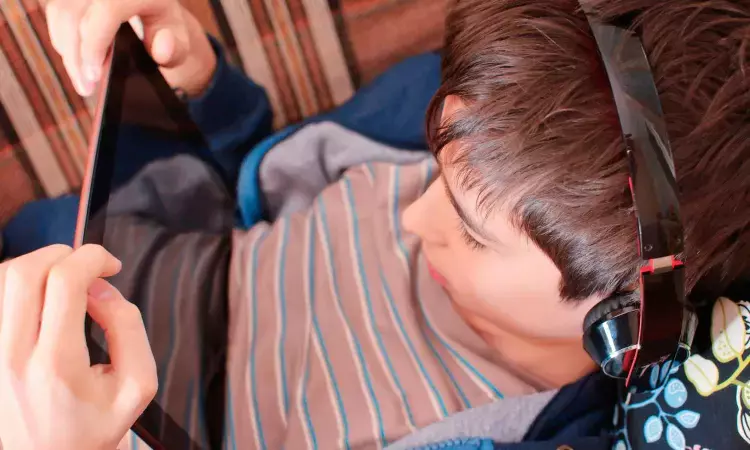- Home
- Medical news & Guidelines
- Anesthesiology
- Cardiology and CTVS
- Critical Care
- Dentistry
- Dermatology
- Diabetes and Endocrinology
- ENT
- Gastroenterology
- Medicine
- Nephrology
- Neurology
- Obstretics-Gynaecology
- Oncology
- Ophthalmology
- Orthopaedics
- Pediatrics-Neonatology
- Psychiatry
- Pulmonology
- Radiology
- Surgery
- Urology
- Laboratory Medicine
- Diet
- Nursing
- Paramedical
- Physiotherapy
- Health news
- Fact Check
- Bone Health Fact Check
- Brain Health Fact Check
- Cancer Related Fact Check
- Child Care Fact Check
- Dental and oral health fact check
- Diabetes and metabolic health fact check
- Diet and Nutrition Fact Check
- Eye and ENT Care Fact Check
- Fitness fact check
- Gut health fact check
- Heart health fact check
- Kidney health fact check
- Medical education fact check
- Men's health fact check
- Respiratory fact check
- Skin and hair care fact check
- Vaccine and Immunization fact check
- Women's health fact check
- AYUSH
- State News
- Andaman and Nicobar Islands
- Andhra Pradesh
- Arunachal Pradesh
- Assam
- Bihar
- Chandigarh
- Chattisgarh
- Dadra and Nagar Haveli
- Daman and Diu
- Delhi
- Goa
- Gujarat
- Haryana
- Himachal Pradesh
- Jammu & Kashmir
- Jharkhand
- Karnataka
- Kerala
- Ladakh
- Lakshadweep
- Madhya Pradesh
- Maharashtra
- Manipur
- Meghalaya
- Mizoram
- Nagaland
- Odisha
- Puducherry
- Punjab
- Rajasthan
- Sikkim
- Tamil Nadu
- Telangana
- Tripura
- Uttar Pradesh
- Uttrakhand
- West Bengal
- Medical Education
- Industry
Joyful music could mitigate virtual reality headaches, dizziness

UK: A recent study has shown the efficacy of music in reducing cybersickness-a type of motion sickness from virtual reality experiences such as computer games.
The study, published in IEEE Transactions on Visualization and Computer Graphics, found that listening to music could reduce the dizziness, nausea and headaches virtual reality users might experience after using digital devices. Cybersickness is reduced significantly when joyful music is part of the immersive experience.
The intensity of the nausea-related cybersickness symptoms was also found to decrease substantially with both joyful and calming music.
Researchers from the University of Edinburgh assessed the effects of music in a virtual reality environment among 39 people aged between 22 and 36.
They conducted a series of tests to assess the effect cybersickness had on a participant’s memory skills reading speed and reaction times.
Participants were immersed in a virtual environment, where they experienced three roller coaster rides aimed at inducing cybersickness.
Two of the three rides were accompanied by electronic music with no lyrics by artists or from music streams that people might listen to which had been selected as being calming or joyful in a previous study.
One ride was completed in silence and the order of the rides was randomised across participants.
After each ride, participants rated their cybersickness symptoms and performed some memory and reaction time tests.
Eye-tracking tests were also conducted to measure their reading speed and pupil size.
For comparison purposes the participants had completed the same tests before the rides.
The study found that joyful music significantly decreased the overall cybersickness intensity. Joyful and calming music substantially decreased the intensity of nausea-related symptoms.
Cybersickness among the participants was associated with a temporary reduction in verbal working memory test scores and a decrease in pupil size. It also significantly slowed reaction times and reading speed.
The researchers also found higher levels of gaming experience were associated with lower cybersickness. There was no difference in the intensity of the cybersickness between female and male participants with comparable gaming experiences.
Researchers say the findings show the potential of music in lessening cybersickness, understanding how gaming experience is linked to cybersickness levels, and the significant effects of cybersickness on thinking skills, reaction times, reading ability and pupil size,
Dr Sarah E MacPherson, of the University of Edinburgh’s School of Philosophy, Psychology & Language Sciences said: “Our study suggests calming or joyful music as a solution for cybersickness in immersive virtual reality. Virtual reality has been used in educational and clinical settings, but the experience of cybersickness can temporarily impair someone’s thinking skills and slow down their reaction times. The development of music as an intervention could encourage virtual reality to be used more extensively within educational and clinical settings.”
Reference:
P. Kourtesis, R. Amir, J. Linnell, F. Argelaguet and S. E. MacPherson, "Cybersickness, Cognition, & Motor Skills: The Effects of Music, Gender, and Gaming Experience," in IEEE Transactions on Visualization and Computer Graphics, vol. 29, no. 5, pp. 2326-2336, May 2023, doi: 10.1109/TVCG.2023.3247062.
Dr Kamal Kant Kohli-MBBS, DTCD- a chest specialist with more than 30 years of practice and a flair for writing clinical articles, Dr Kamal Kant Kohli joined Medical Dialogues as a Chief Editor of Medical News. Besides writing articles, as an editor, he proofreads and verifies all the medical content published on Medical Dialogues including those coming from journals, studies,medical conferences,guidelines etc. Email: drkohli@medicaldialogues.in. Contact no. 011-43720751


